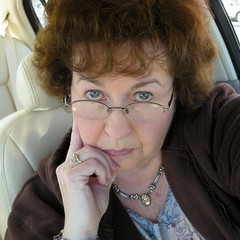Once upon a time, I went to college. (Hooray!) I studied humanities. (Hooray!) In case you’re not aware, this isn’t exactly a lead-in to a six-figure job.
I looooved college, and studied as many things as I could. This resulted in several trips to the college advisement center to change or add another major or minor. (It wasn’t that many, I guess: I majored briefly in communications studies, in a different college, and then I changed to a linguistics major, then added an American studies major, and a Spanish minor, and an English minor. Four years, why?)
On one of these trips to add one of these humanities programs to my already full Major Academic Plan, the advisor who had to okay my plan was very hesitant. I was in a hurry—I needed to get to class and expected this to be a simple “Okeedokey!” Instead, the advisor eyed me and my academic records (which were pretty dang good, thank you very much).
 “And what do you want to do with your degree?” she finally sneered.
“And what do you want to do with your degree?” she finally sneered.
It was a little hard not to laugh in her face. I mean, the woman was an academic advisor in the college of humanities. What did any of the students of English or Classics or Italian Studies plan to do with their degrees?? Why should I, in keeping my options wide open (and without prolonging my time to graduation), be denigrated?
Figuring I probably had little to lose in the office of a woman whose name I hadn’t even bothered to read, I told her the truth: “I want to be a writer.”
It was a little bold, considering I’d abandoned my first and only attempt at a novel two years before, and wouldn’t seriously come back to writing again for four and a half years.
The advisor looked at me over the rims of her glasses. Obviously I’d made a mistake: this woman who had never seen me before and would never see me again sized me up, then held out a hot pink pamphlet. “You might want to take this.”
The trifold advertised a career development class. The message was clear: even in this department of subjects you studied for the love of it, being a writer was not a viable career option.
But I got my second major/minor/whatever it was, and never again darkened the door of the advisement center or the recommended class. I ended up getting a job in writing for marketing for several years, but eventually came back to my first love: writing fiction. And while that’s definitely a crap-shoot and by no means is my success assured, I’ve gotten at least a couple votes of confidence.
Booyah, lady.
I thought of this recently while doing research for yet another novel. I had to dig into my character’s alma mater’s website to figure out what she could’ve majored/minored in. When I visited their version of the college of humanities, the College of Language and Letters, I found this at the top of the page:
Keep away from people who try to belittle your ambitions. Small people always do that, but the really great make you feel that you, too, can become great. —Mark Twain
(A smaller person would probably comment here about the career ambitions of a College of Humanities Academic Advisor, but I’m above that. And also I can’t think of anything particularly clever and concise.)
Who has belittled your ambitions? Feel free to vent here!
Photo credit: soooo not the actual lady described in this post! by Judy Baxter

